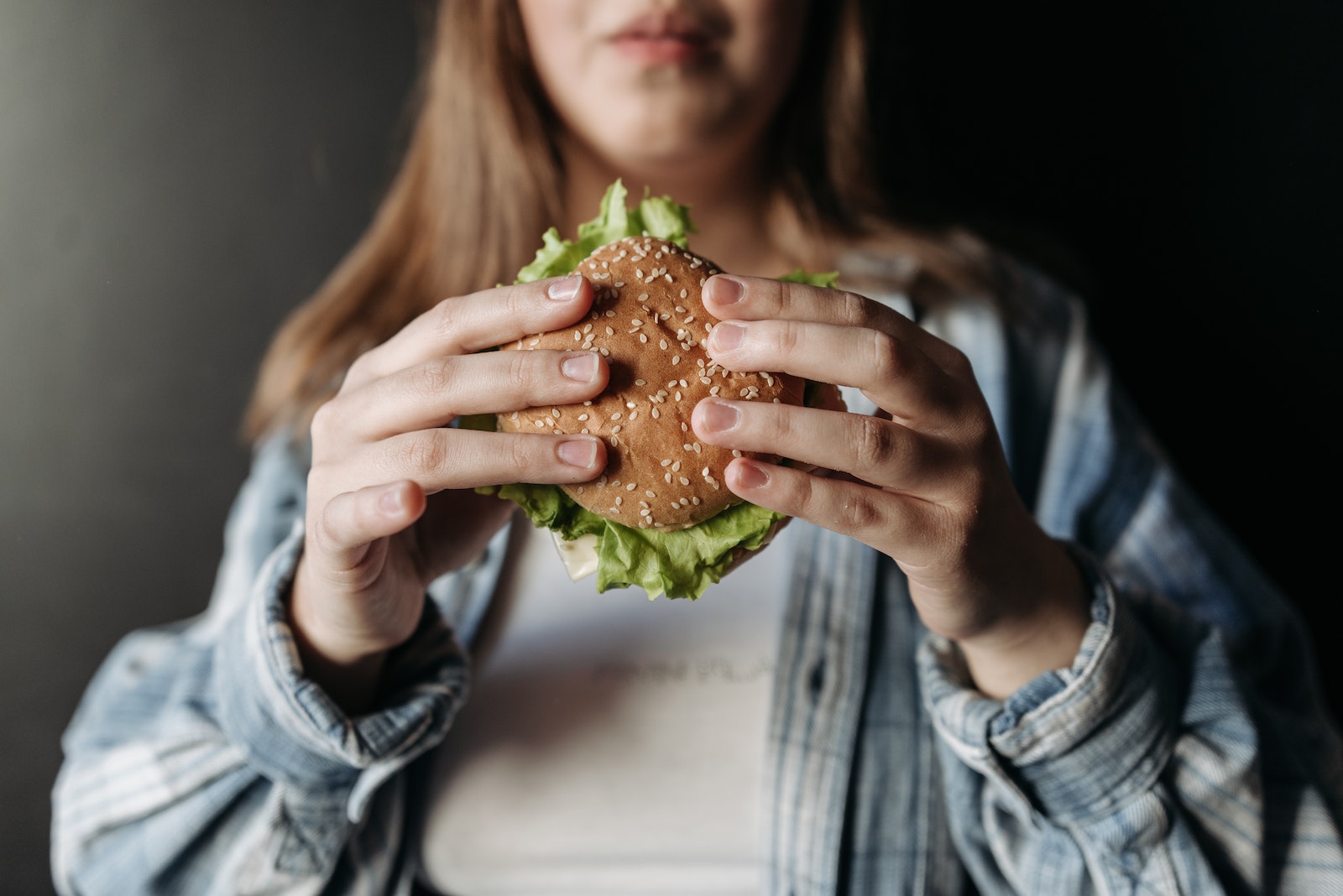Embarking on a transformative journey towards shedding those extra pounds is a pursuit that captivates us all. However, the path to weight loss success goes beyond counting calories and hitting the gym—it delves deep into the intricate workings of our minds. Understanding the psychology behind weight loss unlocks the key to sustainable and triumphant transformation. In our previous blog post we wrote about Sleep and Weight Loss: Mastering Successful Weight Management. In this blog post, we will delve into the depths of weight loss psychology and explore the psychological factors behind successful weight loss.
The Link Between Psychology and Weight Loss
 Weight loss is not merely a physical process; it is deeply intertwined with our psychology.
Weight loss is not merely a physical process; it is deeply intertwined with our psychology.
Our thoughts, emotions, motivations, and behaviors all play a pivotal role in shaping our weight loss journey.
By recognizing the mind-body connection, we can harness the power of weight loss psychology to optimize our efforts.
Weight Loss Psychology: Unlocking the Key to Successful Weight Loss
Weight loss psychology is a multifaceted field that encompasses various psychological factors contributing to successful weight loss.
By examining these factors, we can gain a comprehensive understanding of what drives our actions and decisions when it comes to weight management.
The Psychology of Motivation
 Motivation is vital for weight loss, with intrinsic and extrinsic motivation being the two main types.
Motivation is vital for weight loss, with intrinsic and extrinsic motivation being the two main types.
Intrinsic motivation stems from internal factors like enjoyment and personal values, while extrinsic motivation relies on external factors like rewards and societal pressure.
Intrinsic motivation has a more lasting impact on weight loss, as it leads to consistent engagement despite challenges.
Setting specific, measurable, attainable, relevant, and time-bound goals (SMART) and envisioning success can enhance motivation.
Strategies for maintaining motivation include breaking goals into achievable milestones, seeking inspiration, keeping a journal, surrounding oneself with positive influences, staying informed, rewarding oneself, maintaining a positive mindset, and practicing self-compassion.
Implementing these strategies can increase the likelihood of sustaining motivation throughout the weight loss journey.
Emotional Eating and its Impact on Weight Loss
 Emotional eating is the act of consuming food as a response to emotions, rather than physical hunger.
Emotional eating is the act of consuming food as a response to emotions, rather than physical hunger.
It can hinder weight loss efforts and often stems from factors like stress, negative emotions, learned behavior, and a lack of emotional regulation skills.
To overcome emotional eating, it’s important to identify triggers and emotional states by keeping a food and mood journal.
Strategies to combat emotional eating include finding alternative activities, seeking social support, practicing mindful eating, developing healthy coping mechanisms, and creating a supportive environment.
Remember, overcoming emotional eating takes time and practice. Be patient with yourself and celebrate small victories along the way.
Cognitive Distortions and Weight Loss
 Cognitive distortions are irrational thoughts that can negatively affect body image and weight loss efforts.
Cognitive distortions are irrational thoughts that can negatively affect body image and weight loss efforts.
Examples include all-or-nothing thinking, overgeneralization, and mental filtering.
To challenge these distortions, it’s important to identify negative thoughts, evaluate the evidence supporting them, consider alternative perspectives, and reframe them with positive statements.
Seeking support from trusted individuals or professionals is also beneficial.
Cultivating a positive and realistic mindset involves focusing on overall well-being, setting achievable goals, practicing self-compassion, surrounding oneself with positive influences, and celebrating non-scale victories.
This mindset promotes a healthier relationship with the body and increases the likelihood of long-term success in weight loss.
Building a Healthy Relationship with Food
 Developing a healthy relationship with food is paramount for successful weight management.
Developing a healthy relationship with food is paramount for successful weight management.
Understanding the psychology of food Understanding the psychology of food cravings and binge eating is crucial for developing a healthy relationship with food.
Food cravings can be influenced by both physiological and psychological factors, such as the release of dopamine in the brain and emotional states.
Binge eating, characterized by consuming large amounts of food accompanied by a loss of control, can be driven by emotional factors or restrictive eating patterns.
To establish a healthy relationship with food, practicing mindful eating by being present and attentive while eating, developing emotional awareness, and honoring hunger and fullness cues is important.
It’s also necessary to reject the diet mentality, practice self-compassion, challenge food guilt, focus on moderation and nourishment, and seek support if needed.
Building a healthy relationship with food requires patience and prioritizing overall well-being.
Social Support and Accountability
 Social support plays a crucial role in weight loss success. Having a supportive network of family, friends, or like-minded individuals offers several advantages.
Social support plays a crucial role in weight loss success. Having a supportive network of family, friends, or like-minded individuals offers several advantages.
These include encouragement, motivation, emotional support, and practical assistance.
A supportive network can help individuals stay accountable, celebrate achievements, and navigate challenging times.
To find a supportive community, options include involving close friends and family, joining online communities, participating in support groups, or joining exercise classes or clubs.
Alongside social support, accountability tools such as progress tracking, setting milestones, partnering with a buddy, or seeking professional guidance can enhance weight loss journeys.
Ultimately, personal commitment and dedication are key factors in achieving weight loss goals.
Managing Stress and Emotional Well-being
 Stress has a significant impact on weight loss and overall health. It leads to hormonal changes, emotional eating, disrupted sleep, and reduced motivation.
Stress has a significant impact on weight loss and overall health. It leads to hormonal changes, emotional eating, disrupted sleep, and reduced motivation.
To manage stress and support weight loss, strategies like regular exercise, relaxation techniques, adequate sleep, time management, healthy coping mechanisms, and support systems are recommended.
Prioritizing self-care and emotional well-being is essential.
Negative body image affects weight loss efforts by causing low self-esteem and unrealistic expectations.
Cultivating self-acceptance, challenging societal ideals, surrounding oneself with positive influences, and practicing self-compassion can help.
Nurturing a positive body image throughout the weight loss journey involves focusing on health, setting realistic goals, practicing gratitude, and seeking support.
Body Image and Self-Esteem
 Body image and self-esteem play significant roles in weight loss journeys.
Body image and self-esteem play significant roles in weight loss journeys.
Negative body image can hinder progress, leading to extreme dieting, unhealthy behaviors, and low motivation.
To address this, it’s important to challenge negative thoughts, focus on overall well-being, and surround yourself with positive influences.
Self-acceptance and self-compassion are crucial for maintaining motivation.
Engaging in self-care, practicing self-compassion, and shifting focus to strengths can help cultivate a positive body image.
Setting realistic goals, celebrating non-scale victories, practicing gratitude, and seeking support are essential for nurturing a positive body image throughout the weight loss journey.
Prioritizing mental and emotional well-being alongside physical health is key for long-term success.
Overcoming Plateaus and Setbacks
Weight loss plateaus and setbacks can be demotivating, but they are an inherent part of the process.
Understanding the psychological impact of plateaus and implementing strategies to break through them helps us stay resilient and focused on our goals.
Conclusion
Incorporating weight loss psychology into our journey allows us to approach weight loss holistically.
By understanding and addressing the psychological factors that influence our behaviors and attitudes, we can unlock the key to successful weight loss.
Remember, weight loss is not just about numbers on a scale; it is about cultivating a positive mindset, developing healthy habits, and nourishing our bodies and minds.
Embrace the power of weight loss psychology and embark on a transformative journey towards achieving your weight loss goals
Are you ready to take control of your weight loss journey and uncover the secrets to successful and sustainable transformation?
As you've delved into the profound connection between psychology and weight loss in this blog, you've gained valuable insights into how your thoughts, emotions, motivations, and behaviors impact your progress.
Now, it's time to supercharge your weight loss efforts with the PrimaJust weight loss method.
In our still free report, you'll discover The Exact Method to Unlock Your Metabolism for All-Natural Weight Loss, enables you to shed 1-3 pounds per week automatically, with no need for diets or exercise.
Don't miss out on this opportunity to transform your life.
Click the link below to download your report now and take the first step towards achieving your weight loss goals.
Your journey to a healthier, happier you starts here!
[Source]Free Report
Need more information? Drop a comment below, and we’ll get back to you.
Uncover a wealth of knowledge with these essential related blog posts
-
Weight Loss Surgery Scam Exposed: Unveiling Shortcut Deception
Weight loss surgery has become a popular option for individuals struggling with obesity. Many people…
-
Weight Loss Secrets Unveiled: 9 Ways to Unlock Your Potential
Losing weight can be a challenging journey, often accompanied by feelings of desperation and the…
-
Weight Loss Side Effects Unveiled: Truth About Supplements
Weight loss is a common goal for many individuals seeking to improve their health and…















